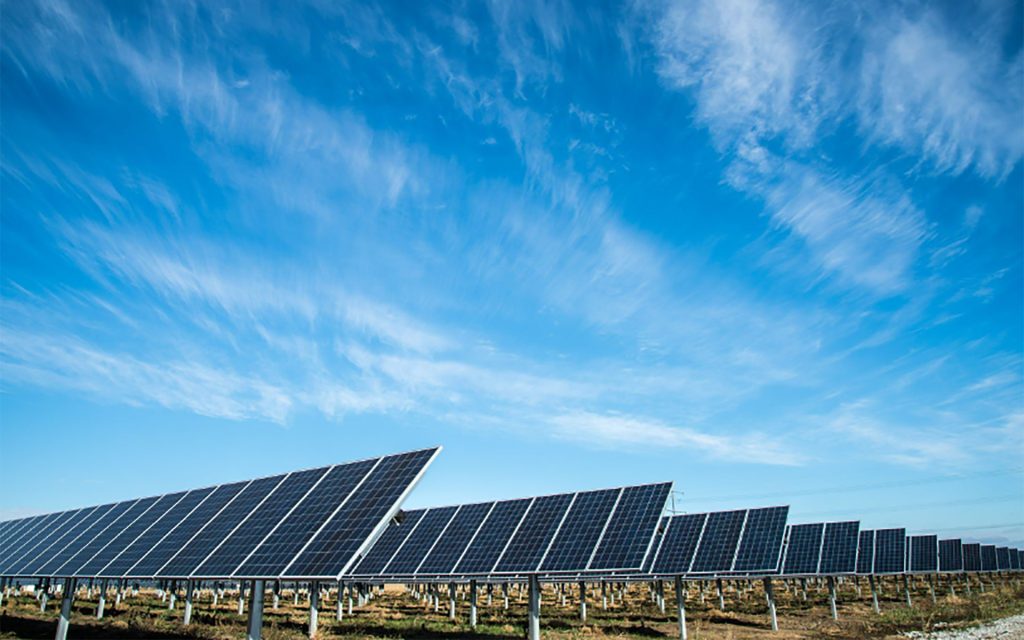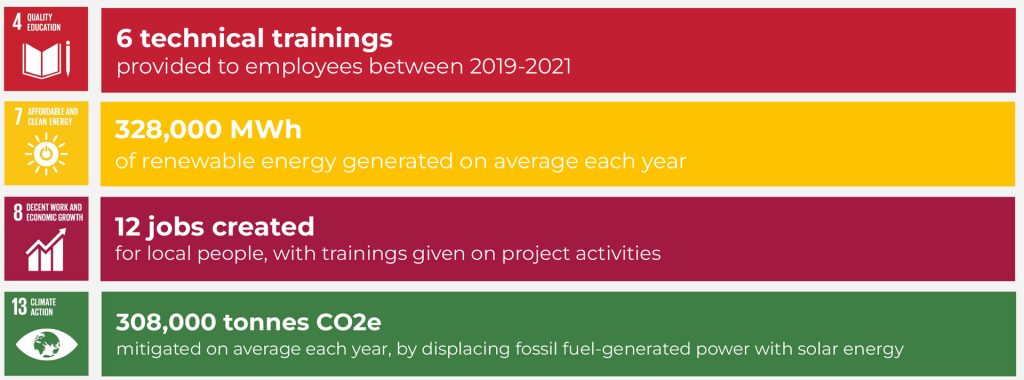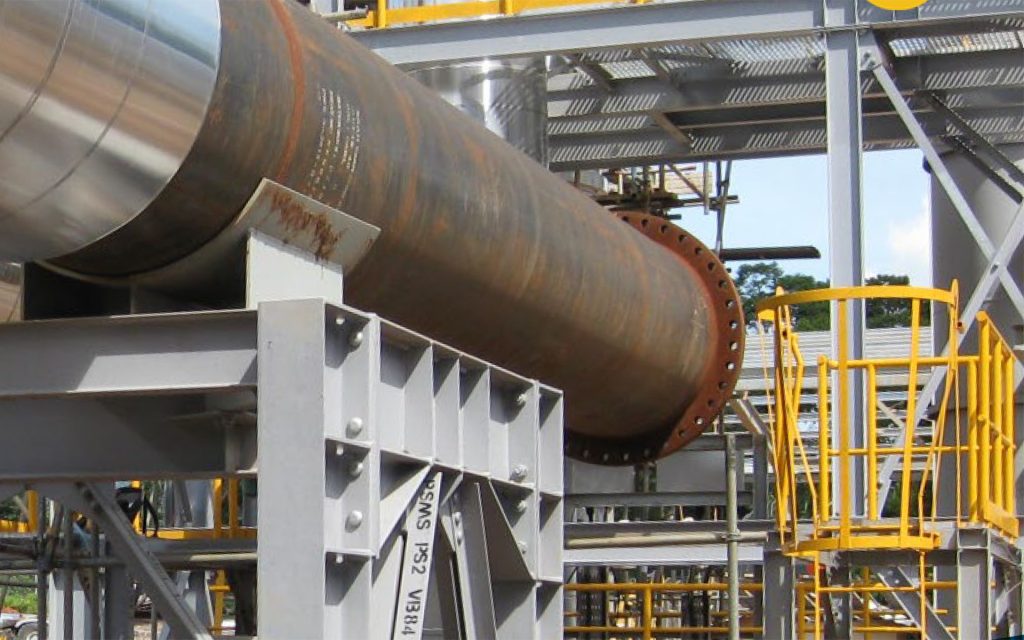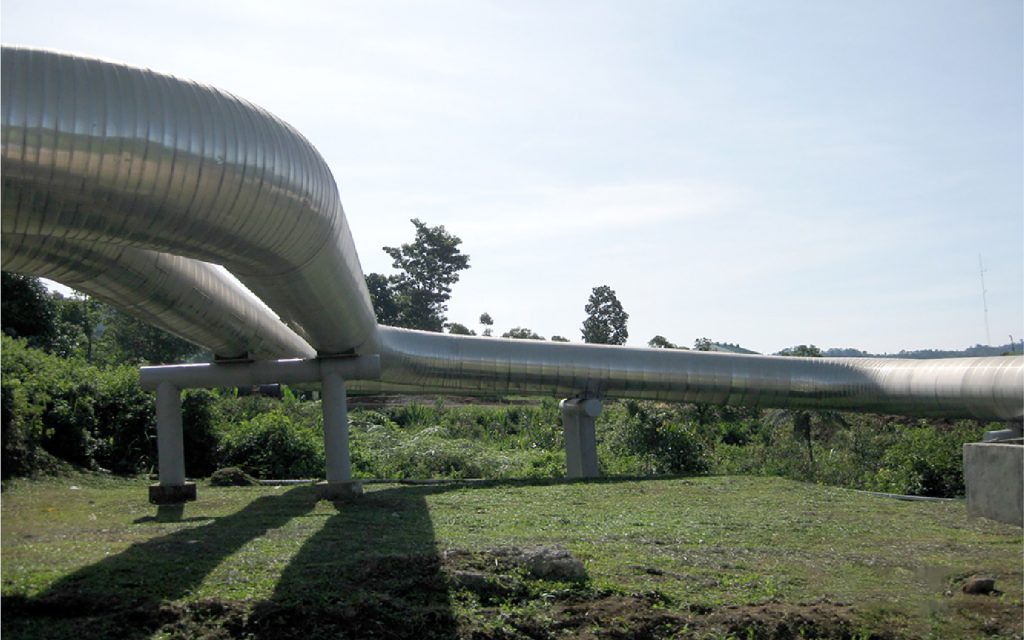India is the world’s fourth largest emitter of carbon dioxide. With its rapid population growth, energy demands continue to increase. This is why GoClimate has chosen to support a large-scale solar plant – the Gold Standard certified Greenko Renewable Energy Project, in Madhya Pradesh in central India.
India is heavily dependent on fossil fuels where coal is the largest source of energy. It stands for 70% of the country’s energy. For the climate, a shift towards more renewable energy is crucial.

The solar plant in numbers
With its annual average production of 328,000 MWh, the Greenko project has the capacity to supply nearly 400,000 people in India with clean energy every year. The solar plant could in other words generate enough electricity to cater for a middle sized city.
Each year, 308,000 tonnes CO2e on average are mitigated. In 2020 (a year incused by the pandemic) the CO2 emissions per capita in the world were 4.62 tonnes. This means that the climate benefits from the solar plant are equal to avoiding the emissions caused by nearly 70,000 people.
How the location of the solar plant is chosen
This large scale solar plant generates green electricity that goes directly to the Indian grid. The Gold Standard certificate is a hallmark and an insurance that the location for the solar panels is carefully chosen. They are often installed in desert-like environments where there is a lot of radiation from the sun and little vegetation, where the panels do not negatively affect the local ecosystem. No forests shall be cut down to make space for a solar plant, neither shall arable land be used.
New jobs in the local community
When a project of this scale is to be built in a small village, it is fundamental that they develop a good relationship with the local community. All Gold Standard certified projects have a grievance mechanism which enables community members to register and voice concerns.
On top of the project’s climate benefits, this project contributes towards the local economy through the creation of 12 jobs and has conducted 6 trainings to educate staff.


